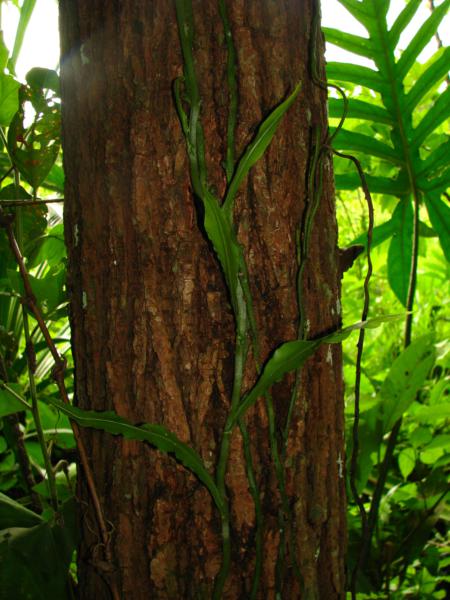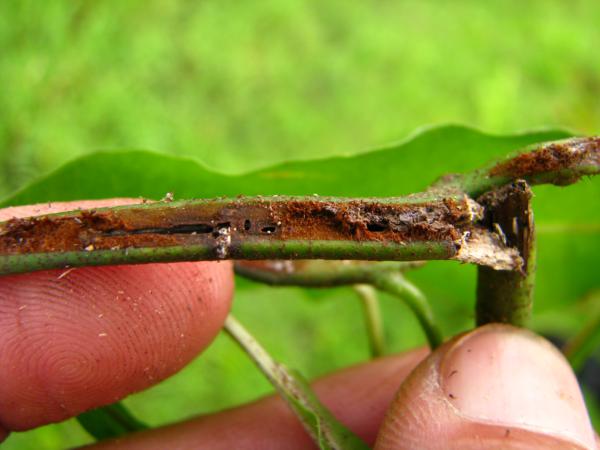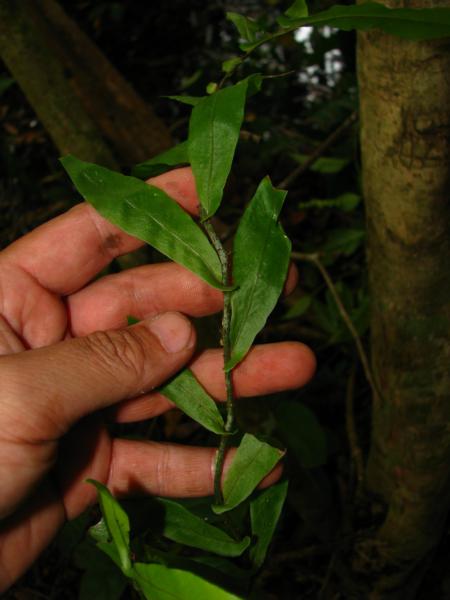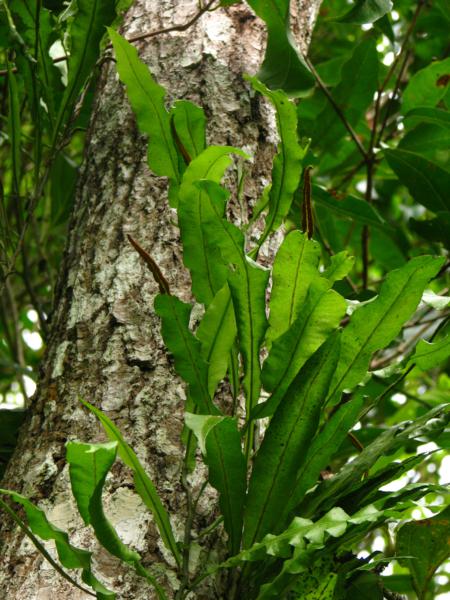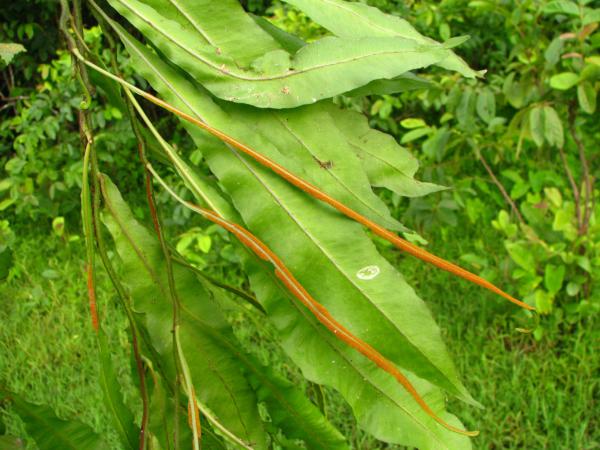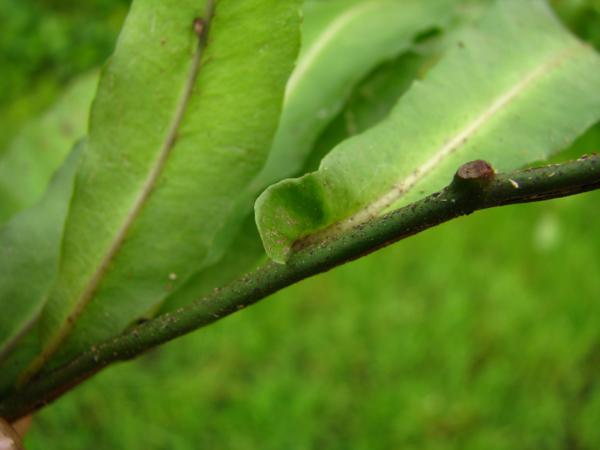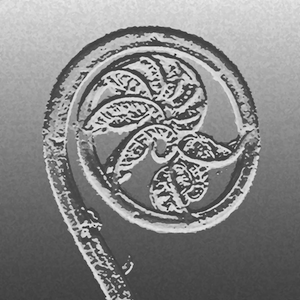
Leptochilus axillaris (Cav.) Kaulf.
Family
Polypodiaceae
Nomenclature
Leptochilus axillaris (Cav.) Kaulf., Enum. Fil.: 147, t. 1, f. 10. 1824; Ching, Bull. Fan Mem. Inst. Biol. 4: 346. 1933; Tardieu & C.Chr., Fl. Indo-Chine 7(2): 499. 1941; Holttum, Rev. Fl. Malaya ed. 1, 2: 164, f. 75. 1955 [‘1954’]; Tagawa & K.Iwats., Fl. Thailand 3: 542, f. 54.6. 1989; Nooteboom, Blumea 42: 278. 1997; Nooteboom, Fl. Males., Ser. II, Ferns and Fern Allies 3: 82. 1998; Boonkerd & Pollawatn, Pterid. Thailand: 276. 2000. – Acrostichum axillare Cav., Ann. Hist. Nat. 1: 101. 1799. – Gymnopteris variabilis var. axillaris (Cav.) Bedd., Handb. Ferns Brit. India: 430. 1883.
Description
Rhizome long creeping on tree trunks, more or less flattened, about 1.5–3.5 mm broad, sparsely scaly, fronds 0.3–8 cm apart; scales peltate, small, 0.5–2 by about 0.1–0.5 mm, ovate with long tails, dark, clathrate, entire or minutely dentate. Fronds dimorphic. Stipes winged nearly to the base, (2–)4–7(–9) cm long but indistinct from the base of laminae. Sterile laminae simple, entire, lanceolate, broadest round middle, gradually narrowing towards both base and apex, acuminate at apex, attenuate at base, 9–35 by 1.1–5.5(–6.5) cm, herbaceous, glabrous, green to dark green; veins more or less visible, lateral main veins not distinct, forming copious anastomosis. Fertile laminae linear, 15–30 by 0.1–0.3(–0.5) cm. Sori covering the whole of the under surface of linear fertile laminae. Spores monolete .
Distribution in Thailand
NORTHERN: Chiang Mai, Chiang Rai, Phrae, Tak; SOUTH-WESTERN: Kanchanaburi.
Wider Distribution
S India, N India, Bangladesh, Burma, Peninsular Malaysia, Sumatra, Java, Borneo, Philippines, New Guinea.
Ecology
Epiphytic on tree trunks in evergreen forests at medium altitudes.
Proposed IUCN Conservation Assessment
Least Concern (LC). This species is widespread and not under any known threat.
Creeping rhizome on tree trunk
Hollow rhizome
Habit
Habit with some fronds partially fertile
Fully dimorphic sterile and fertile fronds
Base of fronds
Site hosted by the Royal Botanic Garden Edinburgh. Content managed by Stuart Lindsay, Gardens by the Bay, Singapore and David Middleton, Singapore Botanic Gardens. Last updated 24 January 2012
